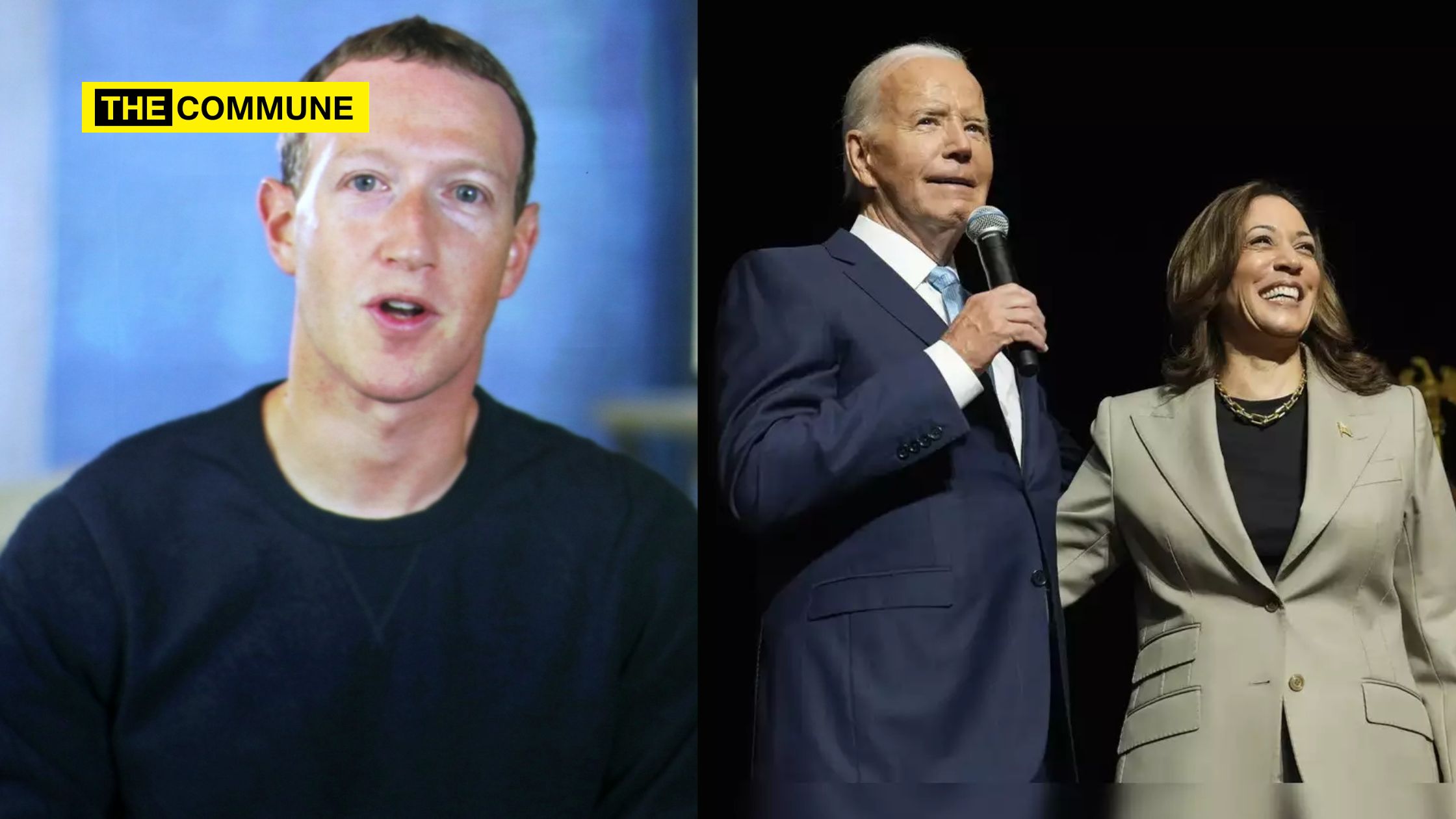
In a recent letter to the U.S. House Judiciary Committee of the Republican Party, Mark Zuckerberg, CEO of Meta Platforms Inc., revealed that the Biden-Harris administration was involved in content moderation on Facebook during the COVID-19 pandemic. Zuckerberg’s letter, which has garnered widespread attention, alleges that his company faced repeated pressure from senior officials within the Biden administration to censor specific COVID-19-related content, including humorous or satirical posts.
Allegations Of Pressure On Meta From Biden Administration
Zuckerberg stated unequivocally that in 2021, “senior officials from the Biden Administration, including the White House, repeatedly pressured our teams for months to censor certain COVID-19 content, including humour and satire.” He noted that when Meta did not fully comply with the administration’s demands, the White House expressed significant frustration. Despite the pressure, Zuckerberg emphasized that the final decision to remove or demote content rested with Meta, saying, “Ultimately, it was our decision whether or not to take content down, and we own our decisions, including COVID-19-related changes we made to our enforcement in the wake of this pressure.”
Reflecting on these events, Zuckerberg expressed regret that his company did not take a firmer stance against the government’s requests. “The government pressure was wrong, and I regret that we were not more outspoken about it,” he wrote. He further asserted that Meta should not have compromised its content standards due to pressure from any administration, adding, “We’re ready to push back if something like this happens again.”
The Hunter Biden Laptop Story
In his letter, Zuckerberg also addressed the controversial decision to down-rank a story from the New York Post regarding allegations of corruption involving then-Democratic presidential nominee Joe Biden’s family. Zuckerberg recounted that in the lead-up to the 2020 U.S. presidential election, the Federal Bureau of Investigation (FBI) had warned Meta about a potential Russian disinformation operation targeting the Biden family and Burisma, a Ukrainian energy company. Acting on this warning, Meta decided to temporarily demote the story while it was sent to fact-checkers for review. However, Zuckerberg acknowledged that this decision was a mistake. “It’s since been made clear that the reporting was not Russian disinformation, and in retrospect, we shouldn’t have demoted the story,” he stated. Zuckerberg indicated that the company has since revised its policies and processes to prevent similar situations from occurring in the future, noting, “We no longer temporarily demote things in the U.S. while waiting for fact-checkers.”
The House Judiciary Committee, which posted the letter on X (formerly Twitter), highlighted three critical admissions by Zuckerberg: that the Biden-Harris administration pressured Facebook to censor Americans, that Facebook complied with this censorship, and that Facebook throttled the Hunter Biden laptop story. The Committee’s post described these admissions as a “big win for free speech.”
🔥🚨BREAKING NEWS: Mark Zuckerberg the founder of Meta, formally known as Facebook and Instagram admits he regrets working with the Biden-Harris administration by censoring information online during the Covid era
In a letter to Chairman Jim Jordan and the House Judiciary… pic.twitter.com/fxeTduqbtt
— Dom Lucre | Breaker of Narratives (@dom_lucre) August 27, 2024
As the US approaches another presidential election, Zuckerberg reiterated his commitment to maintaining neutrality in the electoral process. He emphasized that his goal is “to be neutral and not play a role one way or another — or to even appear to be playing a role,” suggesting that Meta will take a more hands-off approach in the upcoming electoral cycle.
Mark Zuckerberg’s letter to the U.S. House Judiciary Committee about the Biden administration’s pressure on Meta to censor content and Meta’s subsequent actions have raised important questions about free speech and content moderation.
US Media Fails To Report This Development
While Mark Zuckerberg’s letter has made waves in certain corners of the world, particularly in India, it has not received the same level of attention in the United States. There is a growing concern about media freedom and transparency in America. Despite the gravity of Zuckerberg’s admissions, coverage of this story in the U.S. media has been notably muted.
In stark contrast, Indian media outlets have been at the forefront of reporting on Zuckerberg’s letter. Critics question the current state of press freedom in the United States, where it appears that questioning the Biden administration is increasingly off-limits. The silence of major U.S. outlets on this issue may reflect broader concerns about the influence of political power on media coverage.
It is noteworthy that the Biden DOJ jailed a man for a meme on Hillary Clinton. Douglass Mackey was an internet personality known as “Ricky Vaughn” online. He was sentenced to seven months in prison for his role in a conspiracy to interfere with the 2016 U.S. presidential election. Mackey created and distributed misleading memes, falsely encouraging Hillary Clinton supporters, particularly Black, Hispanic, and female voters, to “vote” via text, a method that is not legally valid. The U.S. Department of Justice charged Mackey with conspiracy against rights, arguing his actions deliberately disenfranchised voters. Mackey was found guilty and sentenced to prison despite his defence citing free speech.
Free speech seems to work differently for the US government, especially under the Biden-Harris administration.
Subscribe to our Telegram, WhatsApp, and Instagram channels and get the best stories of the day delivered to you personally.




